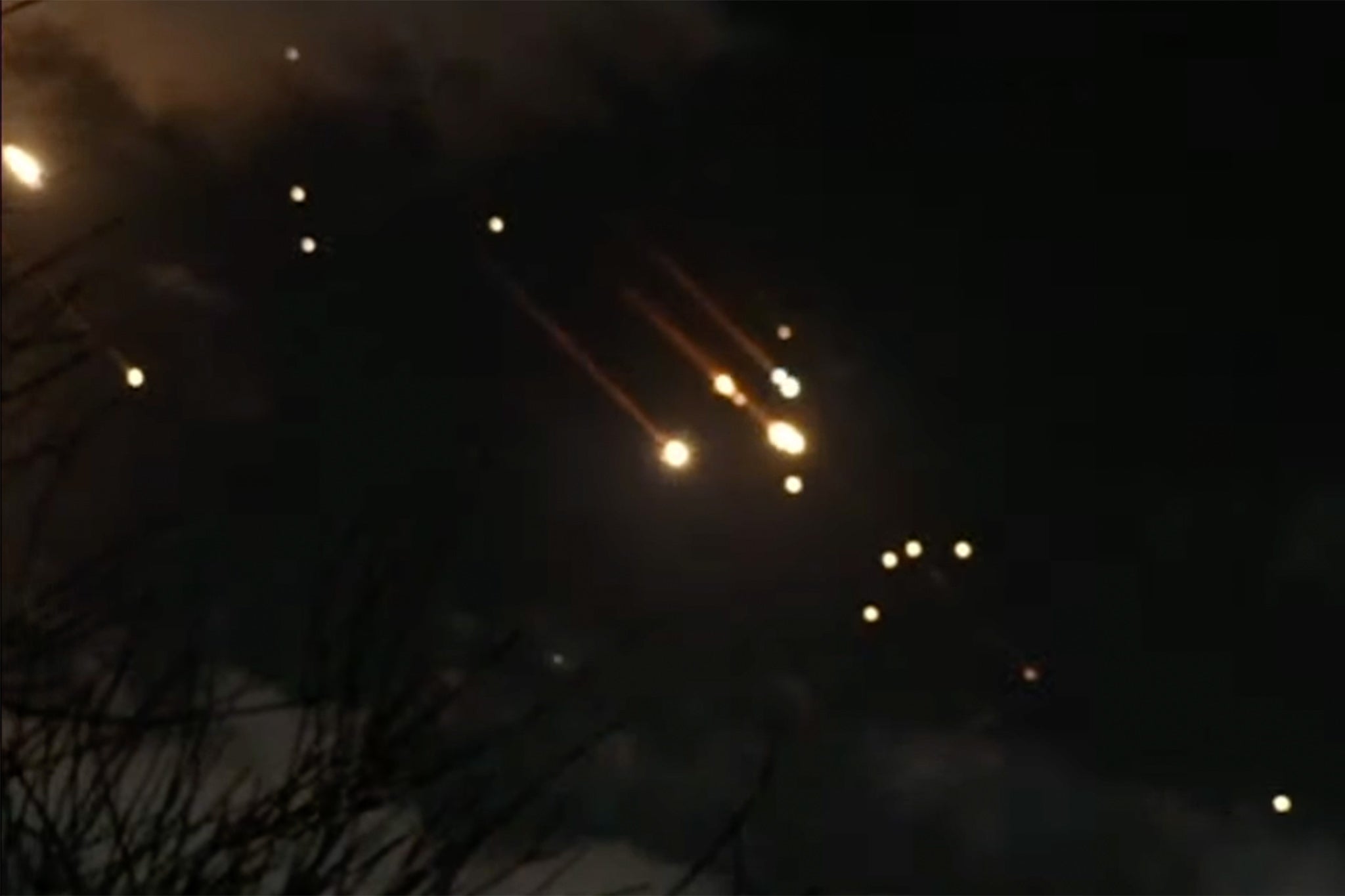UK forces ‘played their part’ in response to Iran missile attack as Starmer backs Israel
Sir Keir Starmer was speaking to Israel’s Prime Minister Benjamin Netanyahu when Iran launched its missile attack on Tuesday night
Your support helps us to tell the story
From reproductive rights to climate change to Big Tech, The Independent is on the ground when the story is developing. Whether it's investigating the financials of Elon Musk's pro-Trump PAC or producing our latest documentary, 'The A Word', which shines a light on the American women fighting for reproductive rights, we know how important it is to parse out the facts from the messaging.
At such a critical moment in US history, we need reporters on the ground. Your donation allows us to keep sending journalists to speak to both sides of the story.
The Independent is trusted by Americans across the entire political spectrum. And unlike many other quality news outlets, we choose not to lock Americans out of our reporting and analysis with paywalls. We believe quality journalism should be available to everyone, paid for by those who can afford it.
Your support makes all the difference.British forces "played their part" in attempts to prevent further violence in the Middle East, the Defence Secretary has confirmed, after Sir Keir Starmer said he stands with Israel following an attack on the country by Iran.
In a statement on Tuesday evening, John Healey said he "completely condemns Iran's attack against Israel".
"British forces have this evening played their part in attempts to prevent further escalation in the Middle East," he added.
"I want to thank all British personnel involved in the operation for their courage and professionalism."
Earlier the prime minister said the UK supports Israel’s “reasonable demand for the security of its people”.
Sir Keir said Tehran has “menaced the Middle East for far too long” and called on the country to “stop these attacks”.
“We stand with Israel and we recognise her right to self-defence in the face of this aggression,” he said.
“Iran must stop these attacks. Together with its proxies like Hezbollah, Iran has menaced the Middle East for far too long, chaos and destruction brought not just to Israel, but to the people they live amongst in Lebanon and beyond.
“Make no mistake, Britain stands full square against such violence. We support Israel’s reasonable demand for the security of its people.”
The attack on Israel began while Sir Keir was talking to Israel’s Prime Minister Benjamin Netanyahu on Tuesday, Downing Street said earlier.
Iran said it fired dozens of missiles into Israel on Tuesday.
Iran said it had launched the missile strike in retaliation for the killing of Hezbollah leader Hassan Nasrallah in Beirut last week.
Before Sir Keir gave his televised speech,a Downing Street spokesperson said: “The Prime Minister spoke to Israel’s Prime Minister Benjamin Netanyahu this afternoon, and they discussed the escalating situation across the Middle East.
“The Prime Minister condemned Iran’s attack on Israel today in the strongest terms, which began during the leaders’ conversation, and expressed the UK’s steadfast commitment to Israeli security and the protection of civilians.
“During the call, the Prime Minister also underlined the importance of a ceasefire in Lebanon to allow space for a political solution in line with UNSC Resolution 1701. The Prime Minister also raised the situation in Gaza and the importance of a ceasefire and action to bring home the hostages.”

Sir Keir also spoke to King Abdullah of Jordan about the “urgent need for a ceasefire in both Lebanon and Gaza”.
A Downing Street spokesperson said that “the leaders began by underscoring the urgent need for a ceasefire in both Lebanon and Gaza. They both called for de-escalation to prevent the extreme humanitarian situation from worsening.
“The Prime Minister said he will work alongside partners and do everything possible to push for de-escalation and push for a diplomatic solution.”
The attack comes after Israel began a ground offensive in southern Lebanon, carrying out what it described as “limited, localised” operations targeting Iran-backed Hezbollah militants.
Earlier on Tuesday, Britons in Lebanon were warned that the UK cannot guarantee getting them out quickly if the “febrile and fragile” situation deteriorates.
Foreign secretary David Lammy urged British nationals in Lebanon to leave via commercial flights or on a UK chartered plane due to depart on Wednesday, warning that the airport in Beirut could be closed if fighting continues.
Speaking to broadcasters at the Foreign Office, Mr Lammy said: “I have warned and cautioned now for months that we have seen, in previous crises between Israel and Lebanon, the airport close, and we cannot guarantee that we will be able to get people out in speedy fashion.
“And of course, this is now turning into a very, very concerning situation on the ground.”
